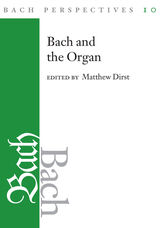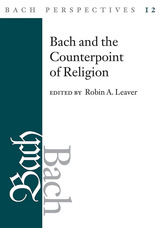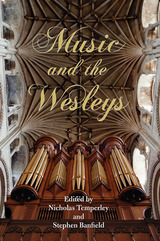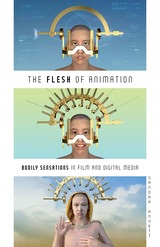3 books by Leaver, Robin A.

Bach Perspectives, Volume 10
Bach and the Organ
Matthew Dirst
University of Illinois Press, 2016
The official publication of the American Bach Society, Bach Perspectives pioneers new areas of research into the life, times, and music of the master composer. In Volume 10 of the series, Matthew Dirst edits a collection of groundbreaking essays exploring various aspects of Bach's organ-related activities. Lynn Edwards Butler reconsiders Bach's report on Johann Scheibe's organ at St. Paul's Church in Leipzig. Robin Leaver clarifies the likely provenance and purpose of a collection of chorale harmonizations copied in Dresden. George Stauffer investigates the ways various independent trio movements served Bach as an artist and teacher. In separate contributions, Christoph Wolff and Gregory Butler seek the origins of concerted Bach cantata movements spotlighting the organ and propose family trees of both parent works and offspring. Finally, Matthew Cron provides a broad cultural frame for such pieces and notes how their components engage in a larger discourse about the German Baroque organ's intimation of heaven.
[more]

Bach Perspectives, Volume 12
Bach and the Counterpoint of Religion
Edited by Robin A. Leaver
University of Illinois Press, 2018
Johann Sebastian Bach was a Lutheran and much of his music was for Lutheran liturgical worship. As these insightful essays in the twelfth volume of Bach Perspectives demonstrate, he was also influenced by--and in turn influenced--different expressions of religious belief. The vocal music, especially the Christmas Oratorio, owes much to medieval Catholic mysticism, and the evolution of the B minor Mass has strong Catholic connections. In Leipzig, Catholic and Lutheran congregations sang many of the same vernacular hymns. Internal squabbles were rarely missing within Lutheranism, for example Pietists' dislike of concerted church music, especially if it employed specific dance forms. Also investigated here are broader issues such as the close affinity between Bach's cantata libretti and the hymns of Charles Wesley; and Bach's music in the context of the Jewish Enlightenment as shaped by Protestant Rationalism in Berlin. Contributors: Rebecca Cypess, Joyce L. Irwin, Robin A. Leaver, Mark Noll, Markus Rathey, Derek Stauff, and Janice B. Stockigt.
[more]

Music and the Wesleys
Edited by Nicholas Temperley and Stephen Banfield
University of Illinois Press, 2010
Providing new insight into the Wesley family, the fundamental importance of music in the development of Methodism, and the history of art music in Britain, Music and the Wesleys examines more than 150 years of a rich music-making tradition in England. John Wesley and his brother Charles, founders of the Methodist movement, considered music to be a vital part of religion, while Charles's sons Charles and Samuel and grandson Samuel Sebastian were among the most important English composers of their time.
This book explores the conflicts faced by the Wesleys but also celebrates their triumphs: John's determination to elevate the singing of his flock; the poetry of Charles's hymns and their musical treatment in both Britain and America; the controversial family concerts by which Charles launched his sons on their careers; the prolific output of Charles the younger; Samuel's range and rugged individuality as a composer; the oracular boldness of Sebastian's religious music and its reception around the English-speaking world. Exploring British concert life, sacred music forms, and hymnology, the contributors analyze the political, cultural, and social history of the Wesleys' enormous influence on English culture and religious practices.
Contributors are Stephen Banfield, Jonathan Barry, Martin V. Clarke, Sally Drage, Peter S. Forsaith, Peter Holman, Peter Horton, Robin A. Leaver, Alyson McLamore, Geoffrey C. Moore, John Nightingale, Philip Olleson, Nicholas Temperley, J. R. Watson, Anne Bagnall Yardley, and Carlton R. Young.
[more]
READERS
Browse our collection.
PUBLISHERS
See BiblioVault's publisher services.
STUDENT SERVICES
Files for college accessibility offices.
UChicago Accessibility Resources
home | accessibility | search | about | contact us
BiblioVault ® 2001 - 2024
The University of Chicago Press









